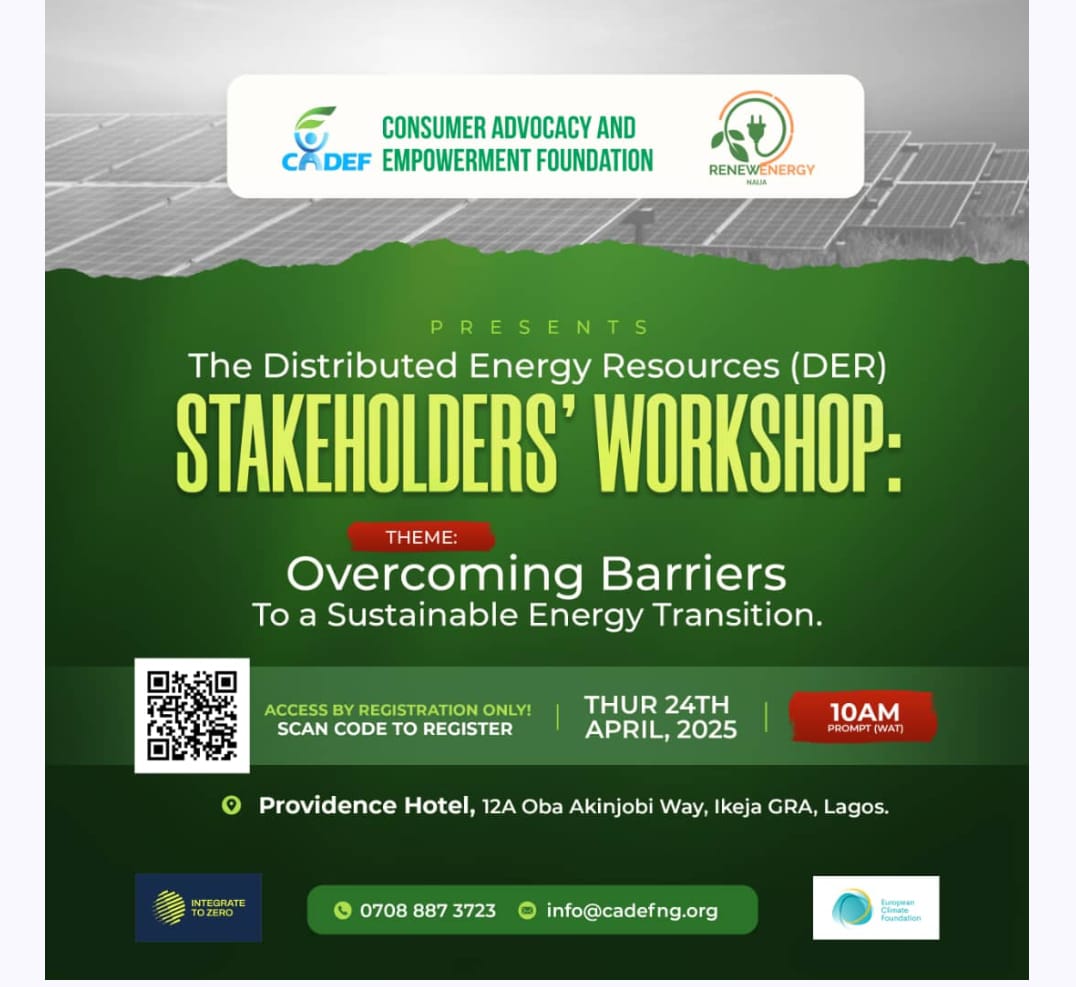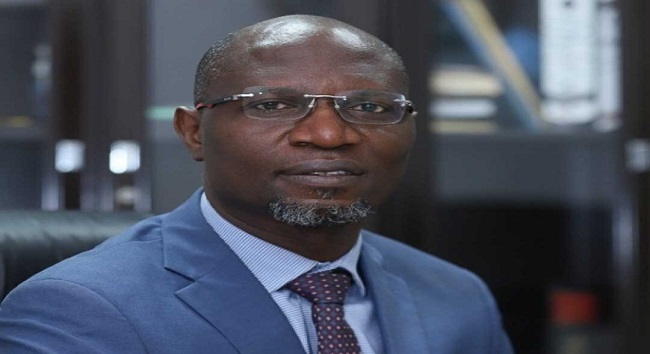News
INEC, NCC Partner to Send SMSes to Owners of Uncollected PVCs

Independent National Electoral Commission (INEC) and Nigerian Communication Commission (NCC) are partnering to send messages to owners of the uncollected Permanent Voter Cards (PVC), according to Mr Soyebi Adedeji, national commissioner of INEC.
Adedeji, at the Nigeria Civil Society Situation Room Dialogue Session on Osun Election in Abuja said that said that the measure became imperative in order to remind Nigerians of their civic duty so as to ensure a successful electoral process.
He said that the number of uncollected PVCs with the commission was of great concern, adding that this number could determine who wins or loses elections.
“The Continuous Voter Registration has come to an end and INEC has other things to concentrate on since election is a matter of a chain of events.
“Before the end of the CVR the commission as at last week had 10 million uncollected PVCs in its possession, now with the end of the CRV there are additional 14 million registrant cards to be processed within 165 days.
“People need to come and collect their PVCs; it is not just about registering, collection is the most important thing. When people register, the collection is always less than 50 per cent.
“We need to find a way to see what we can do about collection so we have decided to partner with NCC to alert Nigerians on the status of their cards,’’ the commissioner said.
Adedeji said that 46 political parties out of the 91 registered had notified the commission about their primaries and when their activities would pick up.

He urged CSOs to partner with INEC to monitor the activities of political parties to ensure that parties played the game according to the rules.
He said there was need for the parties to follow and respect their rules since they made it to ensure internal democracy and respect for their constitutions, stressing that it was the basis of democracy.
The commissioner said that the call for parties to respect the law they made in their parties was necessary in order to forestall too many legal cases after elections.
Adedeji said that between the last election and September 2018, INEC had appeared in court 1000 times due to lack of internal democracy in parties.
He said that INEC has trained ad hoc staff and had made relevant preparations for the Osun election, adding that the secrecy of balloting was also being looked at.
Mr Clement Nwankwo, convener, Nigeria Civil Society Situation Room, a coalition of civil society organisations, assured INEC of its support in ensuring free, fair and credible elections.
Nwankwo said that the legislation on electoral offences should be passed if executive was serious about good governance and called for the passage of other bills relating to elections to strengthen the process.
He also called for the neutrality of security agents during elections, adding that a partisan law enforcement organisation could undermine credible election process.
.
News
UN Says Billion-Dollar Cyberscam Industry spreading Globally

Crime syndicates have made billions scamming victims in Asia and are now expanding their operations to Africa, Europe, South America and further, according to a United Nations report on Monday.

The UN said Chinese and Southeast Asian gangs were targeting victims through investment, cryptocurrency, romance and other scams.
According to the United Nations Office on Drugs and Crime (UNODC), cyberscams are now a sophisticated global industry, featuring sprawling compounds housing tens of thousands of mostly trafficked workers who are forced to con other people online.
“It spreads like a cancer,” said Benedikt Hofmann, UNODC Acting Regional Representative for Southeast Asia and the Pacific said. “Authorities treat it in one area, but the roots never disappear; they simply migrate.”
While the activity had largely been focused on the border areas in Myanmar, a country torn by civil war, and dubious “special economic zones” set up in Cambodia and Laos, UNODC reported networks are expanding their operations to South America, Africa, the Middle East, Europe and some Pacific islands.
“This reflects both a natural expansion as the industry grows and seeks new ways and places to do business, but also a hedging against future risks should disruption continue and intensify in Southeast Asia,” Hofmann added.
Countries in east and southeast Asia lost an estimated $37 billion (€32.5 billion) to cyber fraud in 2023, while the United States reported more than $5.6 billion (€4.9 billion) in losses the UNODC report said.
There were also raids in Cambodia, but they prompted the crime syndicates to move to “more remote locations” and border areas.
Cambodian government spokesman Pen Bona said the country is among the victims of the cyberfraud industry and is committed to fighting it.
According to Bona, the government has established an ad-hoc commission chaired by Prime Minister Hun Manet which seeks to boost law enforcement and legal tools while working with international partners and the UN.
UNODC urged the international community to act, saying it was at a “critical inflection point.”
According to the UN, staying aside would have “unprecedented consequences for Southeast Asia that reverberate globally.”
News
CADEF Hosts Workshop to Drive Distributed Energy Solutions in Nigeria

Consumer Advocacy and Empowerment Foundation (CADEF) a leading not for profit organisation in consumer rights and advocacy in Nigeria has announced a high-level Distributed Energy Resources (DER) Stakeholders’ Workshop scheduled to hold on Thursday, April 24, 2025, at The Providence Hotel, Ikeja GRA, Lagos.

Themed “Overcoming Barriers to a Sustainable Energy Transition”, the workshop aims to provide a platform for robust dialogue and action among policymakers, energy sector experts, investors, development partners, and clean energy advocates.
The Federal Government of Nigeria had in May 2015 approved the National Renewable Energy and Energy Efficiency Policy (NREEEP) as well as the National Determined Contribution (NDC), 2015, which seeks to increase the share of on-grid renewable energy in the total electricity supply from 1.3% in 2015 to 30% in 2030.
As Nigeria pursues its Vision 30:30:30 to generate 30,000MW of electricity by the year 2030, with 30% from renewable energy, CADEF with other experts in the sector will through the stakeholders workshop provide practical and scalable DER solutions, with sessions addressing access to Solar Financing and Investment Opportunities, DER integration strategies and grid resilience, policy and regulatory developments, emerging technologies and case studies.
Speaking ahead of the event, Prof. Chiso Ndukwe-Okafor, Executive Director of Consumer Advocacy and Empowerment Foundation (CADEF), stated: “This workshop is not just about dialogue, it’s about driving action. Distributed energy resources hold the key to unlocking sustainable and inclusive energy access, especially for underserved communities. Through this engagement, we aim to foster cross-sector collaboration and equip stakeholders with the tools and insights needed to scale solutions that work.”
Participants will gain first-hand insights from trailblazers in the clean energy space, while shaping policy and investment discourse on Nigeria’s energy transition. With a rapidly growing demand for reliable electricity, DER technologies such as solar mini-grids, battery storage, and hybrid systems are increasingly vital for Nigeria’s energy mix.
Lovelyn Okafor, CADEF’s Director of Programmes, emphasized the significance of the workshop: “The time is ripe to leverage distributed energy innovations to build a resilient and inclusive energy future. We are bringing together voices that matter, from grassroots change-makers to top-tier investors and government officials to spark lasting transformation.”
Consumer Advocacy and Empowerment Foundation has been at the fore, driving change in the renewable energy sector through some key innovative interventions such as the unveiling of the Distributed Energy Resources (DER) one-stop shop at der.cadefng.org in 2024, a digital platform created to revolutionize how stakeholders and businesses across the DER ecosystem perceive, access and manage energy solutions.
CADEF also announced the launch of the greenlabs programme in collaboration with Jacob’s Ladder Africa, an initiative designed to inspire, equip, and empower young Nigerians to create sustainable, climate-smart solutions that address critical environmental and socio-economic challenges.
Sessions during the workshop will include a live demonstration of the newly launched DER platform (Renew Energy Naija) at DER.CADEFNG.ORG, panel discussions on financing and incentives, public-private partnerships and international collaborations.
CADEF believes that by strengthening multi-stakeholder collaboration, Nigeria can unlock the full potential of decentralized renewable energy, boost energy access, and empower millions of underserved households and businesses.
The workshop is strictly by confirmed registration and part of CADEF’s broader commitment to advancing energy equity and sustainability through advocacy, innovation, and capacity building.
For inquiries or partnership opportunities, please contact: info@cadefng.org | +234 (0) 7088873723
News
SEC Cracks Down on Influencers, Bloggers Promoting Fraudulent Investment Schemes

Securities and Exchange Commission (SEC) has issued a stern warning to social media influencers, bloggers, and celebrities, urging them to desist from promoting unregistered and fraudulent investment schemes. The warning was issued by the SEC’s Director-General, Dr Emomotimi Agama, in a notice released on Sunday in Abuja.

Dr Agama noted that the Commission is working in close collaboration with the Economic and Financial Crimes Commission (EFCC), the Nigeria Police Force, and other relevant government agencies to identify and prosecute those found guilty of flouting investment regulations.
Highlighting the provisions of the newly enacted Investments and Securities Act (ISA) 2025, Dr Agama said the law specifically targets the promoters of unregistered investment schemes, including individuals who use their platforms to endorse such ventures.
“The law also covers influencers and bloggers who promote fraudulent schemes, with clear penalties, including imprisonment,” he stated.
Citing the recent collapse of CBEX—a digital investment platform accused of defrauding Nigerians of over ₦1.3 trillion—Agama described the incident as a stark reminder of the dangers posed by unregulated financial platforms. CBEX allegedly promised unrealistic returns and falsely claimed international partnerships.
“The collapse of CBEX underscores the urgency of our crackdown. We are shutting down their operations, and the promoters will face the full weight of the law,” he added.
Agama reiterated the Commission’s resolve to protect investors and develop Nigeria’s capital market. He urged Nigerians to verify any investment opportunity with the SEC before committing their money, advising: “If it sounds too good to be true, it probably is.”
He also reassured the public of the SEC’s capability to detect and shut down Ponzi schemes, stating, “We have dealt with similar schemes in the past and will continue to do so, leveraging the powers of the ISA 2025 to safeguard investors.”
In a bid to strengthen regulatory oversight, the SEC has established dedicated departments tasked with monitoring market activities and conducting inspections aimed at detecting irregularities early.
“These proactive measures are designed to prevent large-scale frauds like CBEX from recurring,” Dr Agama said.
He concluded by emphasising the significance of the ISA 2025 as a critical tool in securing the Nigerian investment landscape and building a resilient and transparent financial market.

 Telecom2 days ago
Telecom2 days agoMTN Nigeria Takes Broadband Services to the Next Level with FibreX Launch

 News2 days ago
News2 days agoSERAP Files Lawsuit Against NBC Over Ban on Eedris Abdulkareem’s Protest Song Tell Your Papa

 E-Financial2 days ago
E-Financial2 days agoFCMB Group Redefines Corporate Storytelling with The Power Of The Group TVC

 E-Financial15 hours ago
E-Financial15 hours agoCBN, NGX Group Defend Economic Reforms at Nasdaq

 General News15 hours ago
General News15 hours agoEFCC Clarifies SCUML Certificate Misuse amid CBEX Ponzi Scheme Scandal

 Telecom15 hours ago
Telecom15 hours agoPAFON 2.0: Experts Discuss Pathways to Boost Financial Inclusion in Nigeria

 Telecom15 hours ago
Telecom15 hours agoDigital Transformation Remains Africa’s Gateway to Economic Advancement – Adumike

 General News15 hours ago
General News15 hours agoFlashChange Partners Ruth Foundation to Empower Vulnerable Children in Alimosho with Skill Acquisition













